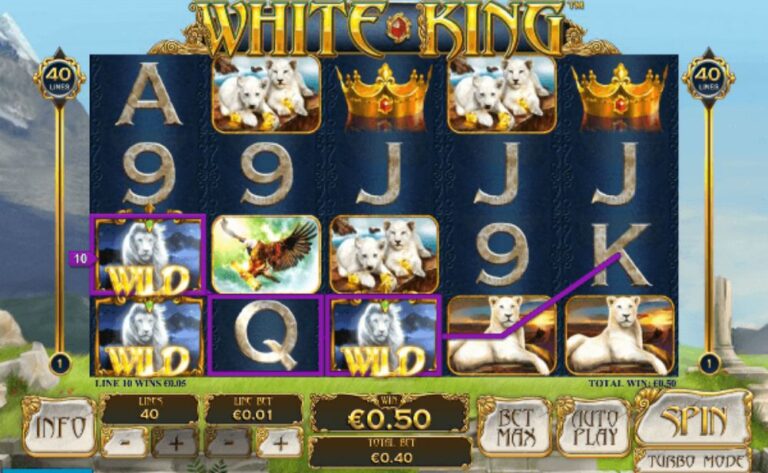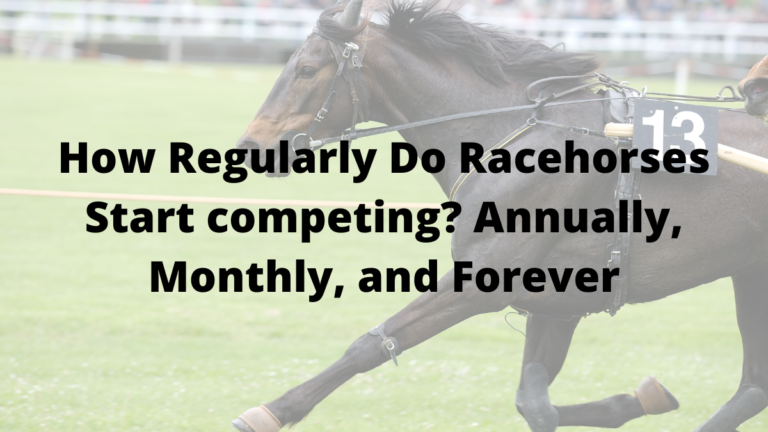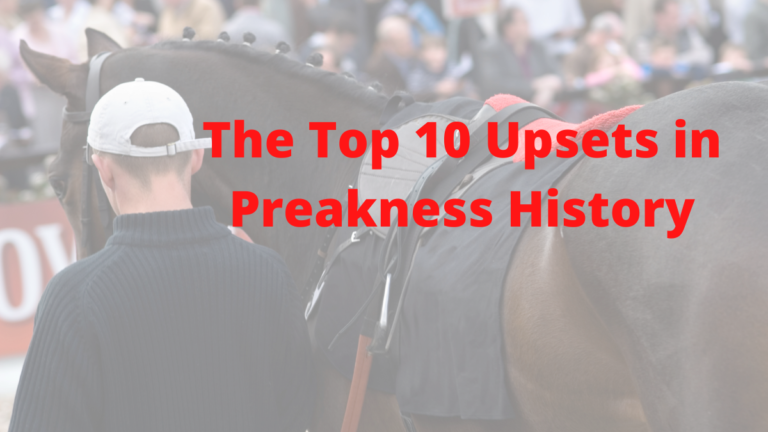Exotic Horse Racing Wagers – The Quinella Betting Market

The Quinella wager is one that is frequently ignored by those who bet on horse racing. Even while we don’t know for certain why this is the case, we have a strong suspicion that it has something to do with the possible payouts. Because the payouts for Quinellas are often quite a bit smaller in comparison to the payouts for the more sophisticated exotics, they are not nearly as enticing because of this fact.
Is it an accurate interpretation of the situation though? We don’t have that view.
The more complex exotic bets, like as trifectas and superfectas, can provide the opportunity to win a sizeable sum of money if you are successful. Payouts in the four-figure range are not unheard of, and payouts in the five-figure range are not quite unheard of either. An unexpected outcome in a significant race might potentially entail the possibility of a payout in the six figures. So, why are these payouts significantly more than usual? They are EXTREMELY challenging to do correctly! Quinellas may have lesser payouts, but they are far EASIER to win than other types of combinations.
If this is the case, would it imply that the Quinella is superior to both the Trifecta and the Superfecta? No, this is not always the case. However, we still advise getting more information about it. The Quinella is straightforward in its very design, and if utilized in the appropriate manner, it may unquestionably result in financial gain.
Below, we will discuss the Quinella in detail and tell you all you need to know about it. This includes a look at the many forms of Quinella, as well as a comparison of Quinella to the other exotics that may be wagered on in horse racing.
In the world of horse racing, what exactly is a quinella?
A wager known as a “Quinella” in horse racing is one that predicts which two horses will come in first and second place, respectively, in a certain race. Buying a ticket for a straight Quinella will normally cost you $2 and require you to select two horses. In order to get a payout, BOTH of your picks must place in the top two positions, but the sequence in which they do so is irrelevant.
Couldn’t we just call this an exacta instead?
Not nearly, no.
Although the Quinella and the Exacta are relatively comparable bets, there is a significant distinction between the two. An exacta wager is similar to a win-place bet in that the bettor must select the horses that will come in first and second place, but they must be selected in the RIGHT ORDER. In the instance of a Quinella, this is not the case. If you choose the proper two horses, you will receive a payout regardless of whether or not you picked them in the correct order. This is true even if you pick them in the wrong order.
For horse purposes, let’s pretend that we bet a Quinella on the third and fourth horses in the horse to come in first and second place respectively. Our ticket will be deemed successful if the numbers 3 and 4 winner in the top two spots, respectively. It is also a winner if the fourth option wins and the third option comes in second. Our bet is only doomed to failure in the event that any of our picks does not place in the top two.
The payouts are still another point of differentiation between the Quinella and the Exacta. The payouts are substantially lower on average for Quinellas than they are for Exactas since Quinellas are simpler to get right than Exactas.
Questions that are Related
Where may I place a Quinella?
At racetracks, off-track betting offices, bookmaking shops, and even some online horse racing betting sites, you may place a wager on a Quinella. Take notice, however, that not ALL racetracks or betting companies really provide them for their customers. They are not as readily available as some of the other exotics since they are not as popular as those other exotics.
How can I place a Quinella?
There are unique betting slips for Quinellas available at some racetracks and betting offices (and other exotic wagers). Typically, they are simple to do, and the instructions are clear and concise. If you find yourself in a bind, all you need to do is inquire with a staff member at the cashier’s window. They will provide you with the information you require.
If there isn’t a specific betting slip available, you’ll have to use a regular one and put the names or numbers of the horses you want to bet on along with the term “Quinella.” You may also place your bet orally at many racetracks, which means that all you have to do is inform the attendants that you would like to put a Quinella wager.
Although the steps required to place an online Quinella bet might vary from one betting site to the next, the processes rarely appear to be unduly difficult.
Is the price of a Quinella always $2?
In a strict sense, yes. The price of each ticket is always $2, but there is no limit on the number of tickets you may purchase. This indicates that there is no limit to the amount of money you may wager on a Quinella. If you’ve chosen the winning option, each of your tickets will be worth an equivalent portion of the payout ticket.
How are the payouts for the Quinella game determined?
The pari-mutuel wagering mechanism is utilized in the game of quinellas. All of the money that is spent on Quinella tickets is placed into a reward pool that is exclusive to each race. At the conclusion of the race, the prize money will be divided according to the number of winning tickets. The amount of money that can be won with each winning ticket is calculated in this manner.
Consider the following scenario: the total prize pool for a race was $10,000. If there were 200 winning tickets, the total prize pool of $10,000 would be divided in half, giving each winner $50. A value of fifty dollars would be assigned to each winning ticket.
What exactly is a Quinella Box, though?
Because of the nature of this wager, we are able to support more than two horses to come in first and second place. If any two of our picks win up in the top two spots, then we are the winners. The Quinella Box provides a convenient and time-saving method for purchasing a number of individual Quinellas in bulk.
Let’s pretend, for the sake of argument, that we think horses #2, #4, and #6 have a good chance of finishing in the top two. In order to account for the following combinations, we would set up a three-horse Quinella Box.
- #2 & #4
- #2 & #6
- #4 & #6
It is important to keep in mind that we do not need to finish Quinellas in the correct order. Therefore, with these three different combinations of horses, we may cover six different outcomes. These are outlined in the following:
- 2-4
- 2-6
- 4-6
- 4-2
- 6-2
- 6-4
This particular package would set you back $6 in total. We have, in essence, purchased three distinct Quinellas in this instance, one for each of the three distinct combinations of our choices that are feasible. If we want to, we may use the same strategy to a greater number of horses, which would bring the total number of possible combinations to a higher level. However, considering the price rise is necessary given that we will always be required to pay $2 for each combination.
The price of a four-horse package, which covers six different conceivable combinations, is $12. The cost of a five-horse package is twenty dollars, and it covers ten different conceivable combinations. The price of a six-horse package, which covers 15 different possible combinations, is $30.
In most situations, we do not suggest employing anything more powerful than a four-horse box. The one and only exemption to this rule is when there is a particularly vast field.
Can anyone explain what a Quinella Wheel is?
With the use of a Quinella Wheel, we are able to determine which particular combinations of horses will end up in first and second place. When we think we know which horse is going to come in first place, but we can’t decide which horse will come in second, this is a good moment to employ this wager so that we may win some money.
When it comes to the Quinella Wheel, we have two different choices. The “whole wheel” is the initial wagering option, and it involves combining our one favorite horse with all of the other runners competing in the race. The “part wheel” is the second wagering option, and it combines our preferred horse with any other options that can be included in the wager.
Full Wheel Example
Our choice for first place in a race is the fourth horse in the horse. We are certain that this horse will win in first place, or at the very least, second. Despite this, we are unable to separate the other horses in the field, so we decide to position a complete wheel so that horse number 4 may be combined with the others. Given that there are a total of six runners, the following combinations would be covered by our entire wheel.
- #4 & #1
- #4 & #2
- #4 & #3
- #4 & #5
- #4 & #6
Because there are five different combinations available, the price of this wheel is ten dollars. If horse number four comes in either first or second, then we will definitely have a winning ticket. In the event that it comes in outside of those places, we will be defeated.
Part Wheel Example
Once again, we believe that the horse ranked fourth in the horse is going to win the race. However, this time around, we are also going to be highlighting two more horses who stand out. Both the horse ranked second and the horse ranked sixth are contenders for one of the top two spots, in our opinion. We come to the conclusion that the best option is to put in a component wheel that combines our other two choices with the number 4.
This would result in just two possible combinations: the fourth with the second, and the fourth with the sixth. The price would be four dollars. If any two of our three picks end up in first or second place, then we will definitely have a winning ticket.
When it comes to Quinellas, we believe that part wheels are the best option to go with. When used appropriately, full wheels have the potential to be successful, and Quinella Boxes also have the potential to be worth the investment on occasion. However, part wheels are typically the most cost-effective option. We don’t have to risk a lot of money, but we’re still able to cover the combinations that we consider to have the highest likelihood of occurring.
The manner in which we make our choices is, of course, of the utmost significance. No matter what kind of Quinella we play, our odds of coming out on winning will always be determined by how well we can select winners from among the horses in the field.
The Quinella Bet Compared to Other Unusual Wagers
The odds of winning a significant amount are increased with the use of trifectas and superfectas. They are so similar to buying a lottery ticket that they might nearly be regarded the horse racing equivalent of doing so. On the other hand, quinellas provide a significant opportunity to win a little prize. The profits are not nearly as substantial, but so is the risk. Which of these two choices, therefore, is the one you should go with?
The reality is that there is no option that can be considered “better.”
To conclude this piece, we would want to make this point very obvious. We are familiar with people who bet on horse racing and who are always concerned about whether they should be placing Trifectas and Superfectas or whether they should instead focus on Quinellas and Exactas. This is a terrible use of both time and effort! They are not required to make a decision because it is acceptable for them to wager on ALL of these different things.
There are some people who advise against going for the large prizes that may be had by playing trifectas and superfectas. This recommendation is not one that we support. When it comes to getting value from your bets on horse races, it’s possible that this is not the best method, but it’s certainly not the worst either. We make frequent wagers on our own trifectas and superfectas, and the activity never fails to provide us with a good time. We’ve also had some significant victories here and there, which haven’t fundamentally altered our lives but have been cause for celebration nonetheless.
People who believe that Quinellas and Exactas should be ignored are not on our side, and we don’t agree with them. This is terrible guidance to provide. Despite the fact that these bets do not provide the same potential benefits, it is nevertheless possible for them to be lucrative. In point of fact, the typical gambler on horse racing has a far better chance of making a profit overall by sticking to the simpler exotic bets. The concept of winning a smaller amount more frequently may not be as thrilling as the prospect of winning a much larger amount all at once, but it is undeniably more plausible.
Our recommendation in this situation is easy to understand. Educate yourself on all of the unusual bets. Try different things with them. Have some fun. You should make an effort to win some money, but you shouldn’t waste time pondering which one is “better.” That serves no use at all.
Do you have an interest in finding out more about the other unusual bets? Then make sure you read the articles that are listed below!





